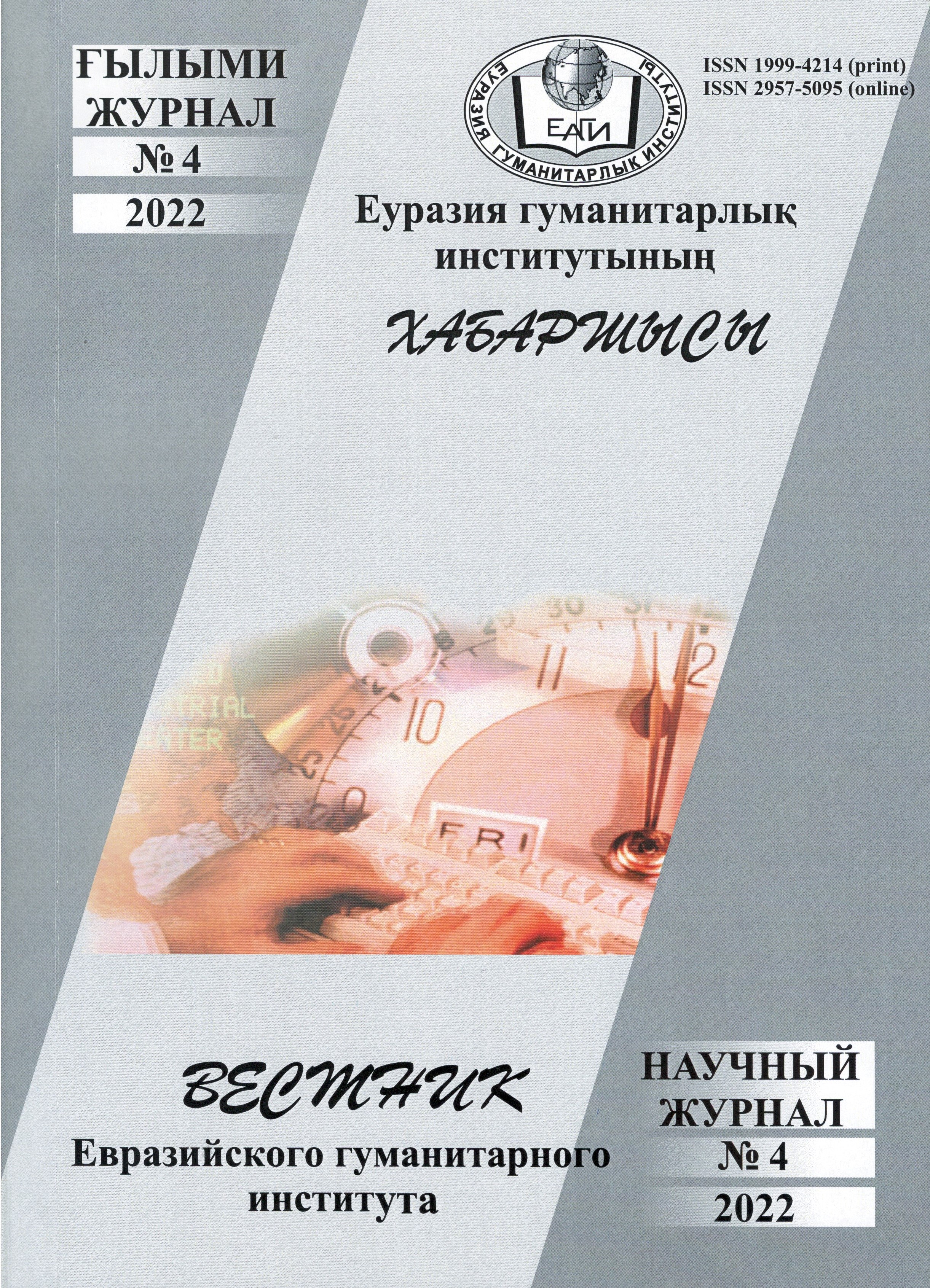ЗНАЧЕНИЕ ФОЛЬКЛОРА В ОБУЧЕНИИ КАЗАХСКОМУ ЯЗЫКУ
Ключевые слова:
фольклорный жанр,, устная литература,, пословицы,, загадки,, речевая деятельность,, словарный запас,, богатство языка,, познавательное содержание.Аннотация
Известно, что представление о языке, литературе, культуре какого-либо народа берет свое начало в фольклоре. Фольклор-это богатое литературное наследие народа, искусство слова, быт, жемчужина национальной культуры . В ней много информации, связанной с национальным мировоззрением. В современную эпоху глобализации использование образцов фольклора на уроках «казахского языка» в вопросах того, как мы можем впитать и передать это духовное наследие молодежи, может не только повысить словарный запас, богатство языка, мастерство употребления слов, но и расширить кругозор обучающихся, приобрести большое значение в направлении национального воспитания.
В статье речь пойдет о государственном языке – методике использования казахского фольклора в процессе обучения казахскому языку. Возможность использования информации, упражнений, связанных с фольклором, в задачах речевой деятельности на чтение, аудирование, говорение, письмо обсуждается в контексте практического занятия.
В ходе каждого занятия рассказывается о познавательных, воспитательных аспектах, которые фольклор дает обучающимся. Виды работы с пословицами , поговорками, загадками можно использовать, преобразовывая их в соответствии с темами в типовой программе. Это связано с тем, что данные образцы фольклора компактны по объему, легки в произношении и просто воспринимаются изучающим язык, выстраиваясь в ритмический тон. Несмотря на то, что пословицы компактны и просты в построении, словарный запас, богатство языка, развивают кругозор обучающегося, расширяют его словоупотребление, учат выразительной речи.
Один из малых жанров фольклора – использование загадки, к сожалению, в последнее время встречается редко. Поэтому в целях популяризации богатейших сокровищ народного наследия на уроке следует давать больше загадок. Загадки развивают мышление человека, расширяют кругозор, обогащают язык обучающегося в процессе выявления высказанной мысли.
Фольклорные образцы, полученные на уроках «казахского языка» в ходе чтения текста, помогают овладеть темой, раскрыть ее содержание.


